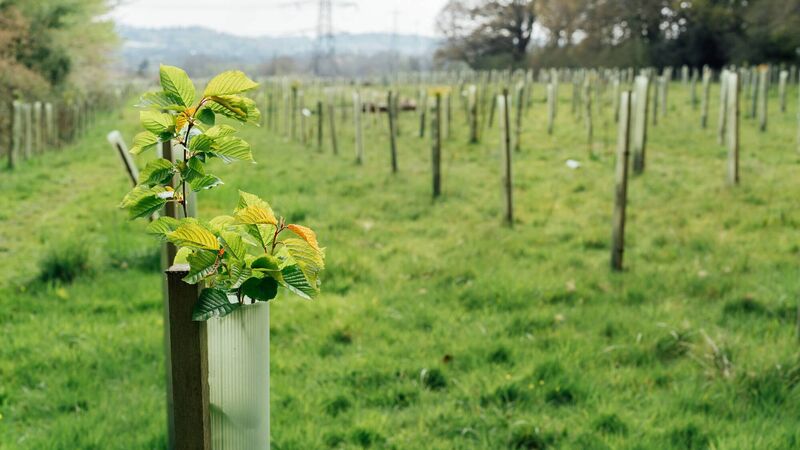Heydon: Forestry on peat is complex and must be science-led

Agriculture minister Martin Heydon said any changes to forestry programmes must be informed by science.
Some soils currently excluded from Ireland's forestry planting will contribute positively if planted, said agriculture minister Martin Heydon last week.
He revealed forestry on peat soils was being investigated in a €2.7m research programme, entitled 'Management of peatland forests for climate, biodiversity and water quality'. It is a four-year project, but there may be preliminary results within two years.
Responding to Dáil questions, the minister said: "The subject of planting forests on peat soils is not black and white. Forests planted on peat soils can contribute to climate, biodiversity and timber production."
The subject has been controversial since forestry minister Michael Healy-Rae said in April that Ireland would not have enough timber if forest planting was restricted to shallower peat soils, less than 30cm deep.
Green Party leader Roderic O'Gorman hit back, saying planting on peatlands would be "environmental madness".
Mr Heydon said last week, "I am not in favour of planting on deep peat sites, where there is a net carbon emission, or planting important peat habitats, blanket bogs, raised bogs and other important habitats on peat soils. These will remain unplanted".
He confirmed the EU state aid approval for Ireland's forestry programme prohibited planting on deep peat soils. "On the other hand, it permits planting of commercial forest and native woodlands on shallower peat soils, less than 30cm deep, and some midland fen peats planted with native woodlands".
Mr Heydon said any changes to forestry programmes must be informed by science.
"In relation to any future forestry programmes, these will have to be agreed with the EU Commission, and it will be important that whatever we propose as part of that programme, we will be able to back it up with science and common sense".
In April, Mr Healy-Rae said farmers wanted to plant peatland.
"Farmers do not want to plant their green ground, because they have worked so hard to get the bit they have. They broke their backs and bones to make the land green, and they do not want to plant trees on it, but instead use it for grazing," he said.
He said things had not been as bad with regard to planting since 1946.
He revealed he hoped to improve the agroforestry scheme. "To be blunt, I do not agree with the terms of the scheme at present. They are not good enough.
"The first bit of advice I would give to a farmer who wants to plant agroforestry at the moment is to wait until we improve the scheme."
He also revealed there would be a reconstitution scheme. Landowners can take out the 25,000 hectares damaged by Storm Éowyn and can retrospectively apply for the reconstitution scheme.
"I just hope we will be able to put together the money to make it strong enough to take the harm out of having to replant".
He said some of the damaged timber might not be heavy enough, resulting in a smaller-than-expected payment from sawmills, and landowners would not want to overspend on replanting to get back to where they started.
He also revealed an ambition that every privately owned forest in Ireland would be certified.
"Certifying a forest will give people an interest in their forest again. I am not looking to put an imposition of money on them. My aim is that the department will be paying for it".
Mr Healy-Rae said every farmer in the country, whether they have forestry or not, should be entitled to carbon credits.
"In my infinite wisdom, many years ago, I automatically assumed that carbon credits were going to be a big thing of the future. I thought we would own them, could trade them, and that they would be a valuable commodity. Unfortunately, we have not got there yet. It is something we all aspire to," he said.


